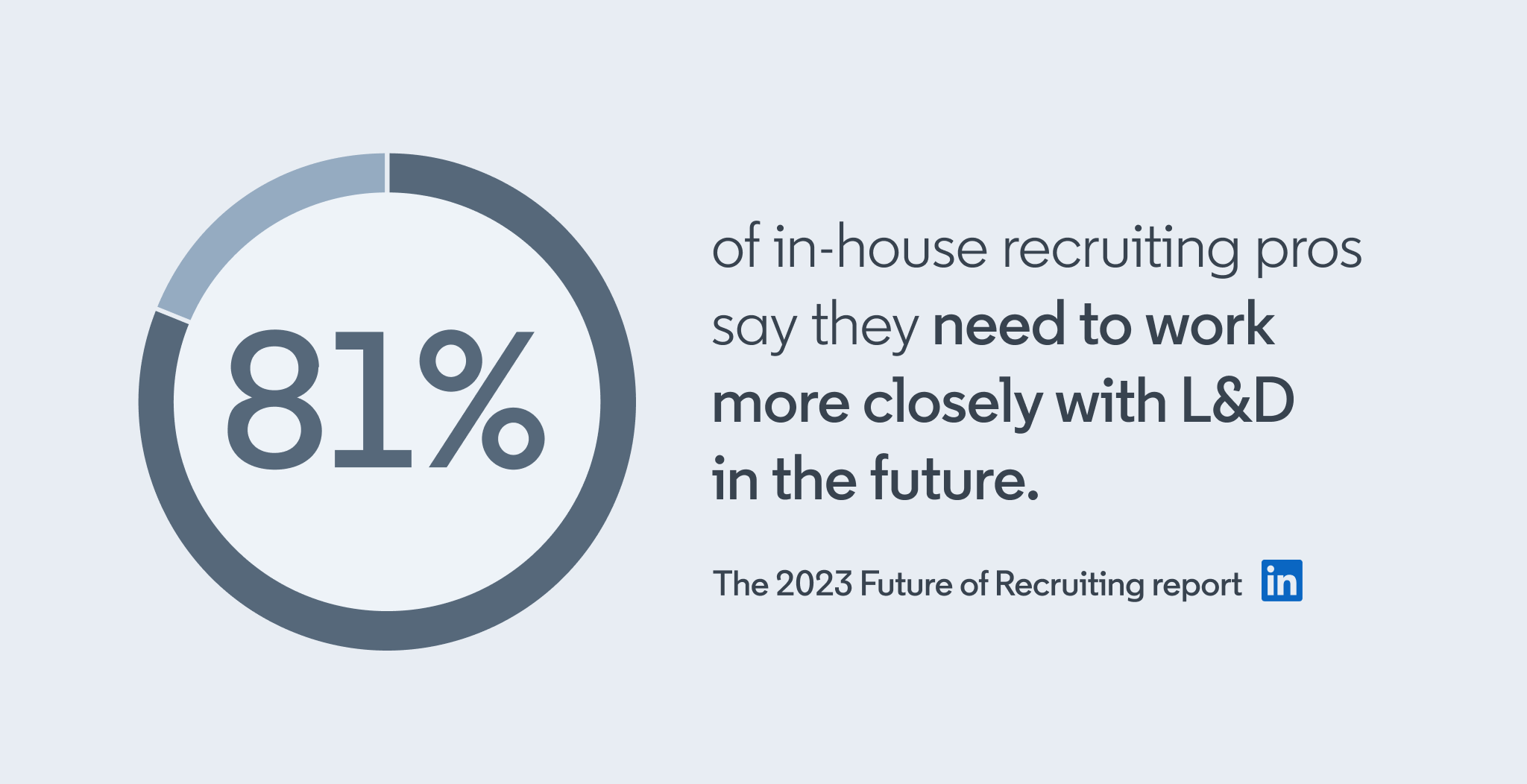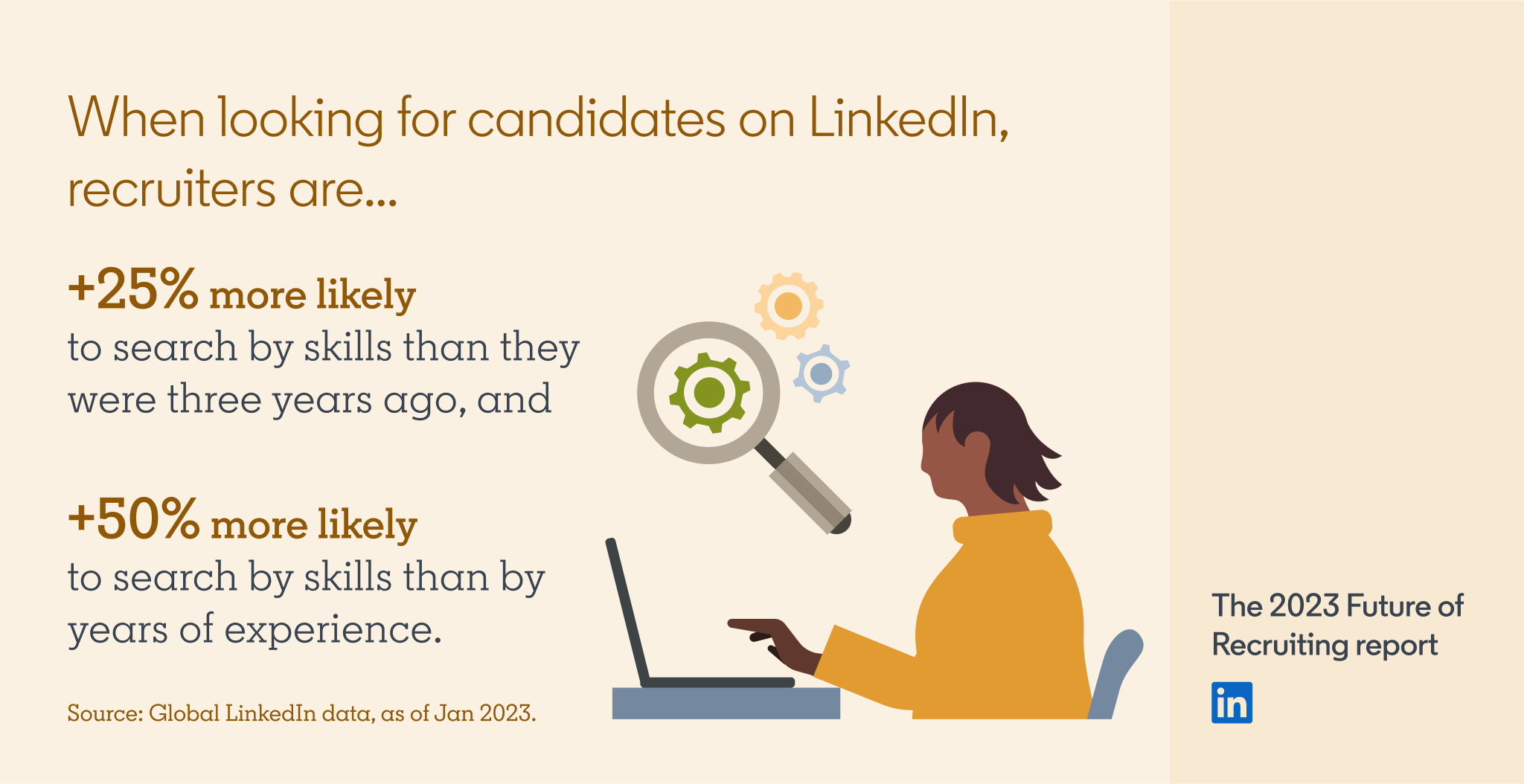
LinkedIn releases its latest insights, discusses hot topics for hiring professionals

LinkedIn Talent Solutions has released its latest global report - The Future of Recruiting 2023 - which lists 17 predictions for recruitment over the next year.
The last three years have been famously unpredictable. A stubbornly tough labour market, rising inflation and a cost-of-living crisis have all pushed recruiters to be more adaptable, and to re-think the way they hire. Based on billions of data points generated on LinkedIn, interviews with talent leaders and surveys of recruiting pros, the report provides insights to help recruiters prepare for what’s ahead.
According to the Future of Recruiting report, recruiters are set to have significantly more influence over business strategy.

“Recruiting professionals have never been able to make a bigger impact than right now,” Microsoft VP of global TA Brett Baumoel says.
“You used to be able to say, ‘these hires helped our company.’ Now you can say, ‘I changed the make-up of our company, I changed where we work, I changed what we look for, and I changed how we hire.”
In a market where competition for talent is high, recruiters will also have to rethink the way they pitch to candidates. With compensation ranked as a #1 priority for candidates globally, recruiters are likely to have more say over pay, and will need to focus on conveying a clear and attractive employer value proposition (EVP).
Shaker Recruitment Marketing VP of employer brand, diversity & culture John Graham Jr. notes that this branding needs to be “beyond the performative,” and should allow candidates to “understand who you really are, beyond what your career site says.”
To build a strong EVP, recruiters will also need to understand what candidates want - and at the moment, the report suggests they may be putting too much focus on the wrong areas. It found that recruiters tend to over-value flexible working arrangements and advancement opportunities, and under-value employee happiness and skills development.
“When the economy recovers, the competition for talent is going to spike back up very quickly,” Randstad Global chief talent officer Marc-Etienne Julien says.
“So it’s really important for companies to make progress in how they position their employer brand and, more importantly, how they bring it to life.”
With AI technology developing rapidly, using it in recruitment is becoming a no-brainer. 74% of hiring pros already automate repetitive tasks, and 67% say it makes sourcing candidates faster and easier.
The Future of Recruiting Report predicts that generative AI (GAI) holds “a lot of promise” for talent professionals, who could use tools like ChatGPT to draft job descriptions and write personalised messages to candidates, along with other repetitive tasks.
However, the report notes that it will still be vital for these tools to be used alongside a human eye.
“You still need to keep your hands on the wheel,” hiring influencer Glen Cathey says.
“Humanness still matters, especially for hard to fill jobs, and the core of that is empathy.”
As recruiters search for the best talent, they are increasingly seeing the value of prioritising skills over a candidate’s degree or their previous employer.
The Future of Recruiting Report reveals that hiring professionals are 25% more likely to search by skills compared to three years ago, and are 50% more likely to search by skills rather than by years of experience. It says that skills-first hiring is “poised to be the way of the future” - though with only 64% of recruiters feeling they can accurately assess a candidate’s skills today, there is clearly still some catching up to do.

The report notes that a skills-first strategy can also help shine a light on overlooked talent, and employers are becoming more open to hiring candidates without a degree.
“Scrappy, self-taught types won’t have shiny brand names on their resume,” says Clyde Seepersad, SVP & GM, training & certification at The Linux Foundation.
“Local community colleges are a great source of nascent tech talent that big employers never ever recruit from.”
The Future of Recruiting 2023 report discusses 17 predictions for the future of recruiting, including upskilling and internal mobility, the role of diversity and inclusion, Gen Z’s priorities in the workplace, and more. To read the full global report, click here.